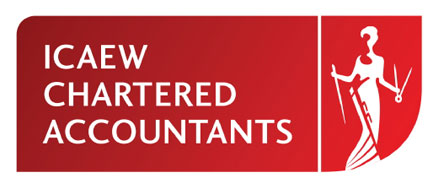RBS Investors Had 129 Million Reasons to Settle Share Suit
May 31,2017
Investors suing Royal Bank of Scotland Group Plc over an ill-fated 2008 share sale had one big incentive to settle before trial: an estimated 129 million-pound ($166 million) bill racked up by the lender’s lawyers.
In U.K. courts, losers pay their share of the winner’s legal fees, a system designed to deter frivolous lawsuits. While the investors who previously refused RBS’s settlement offer wouldn’t have been liable for the entire amount, they could have been left with a bill of about 35.5 million pounds — not including their own lawyers’ costs — had they failed.
“It’s an astonishing figure,” said Jim Diamond, an attorney who handles disputes over fees and isn’t involved in the case. Such a potential liability would have been enough to “frighten the claimants to death.”
It’s one of the biggest court cases in London this year, with angry investors relishing the prospect of seeing former RBS bosses including ex-Chief Executive Officer Fred Goodwin take the witness stand to explain the bank’s collapse and bailout. The shareholders argue they were misled about the bank’s financial health when it held an emergency rights issue in 2008 only to be nationalized months later.
But in a move that may avert an embarrassing court showdown, a holdout group of shareholders said Monday they had accepted the lender’s improved offer of 82 pence ($1.09) per share. RBS had already settled with the majority of investors last month before doubling its offer to the remainder.
The trial had been postponed until June 7 while the claimants and their attorneys located investors they had lost contact with over the years. Lawyers were scheduled to update the court on their progress Tuesday. Any deal will require approval from the judge.
Judge Robert Hildyard said in a pre-trial decision from May that RBS’s “extraordinary” and “unparalleled” spending on lawyers and experts for the case was a cause for concern.
Explaining their decision to settle, the RBoS Shareholders Action Group said Monday that the longer the case continues, the more money will be expended in legal fees and other costs, which will result in more deductions from any damages award.
“Put simply we would have to significantly ‘beat’ the current offer of 82 pence to put the claimants in the same position as they would now be in, further down the line,” the group said.
RBS declined to comment on Monday’s development and said in an earlier statement that its spending on lawyers is tied to the difficult nature of the case, and the number of investors involved.
“This is a substantial and complex case and the manner in which it has been pursued has resulted in the bank incurring substantial legal costs,” the lender said.
The bank hired 13 trial lawyers, known as barristers, in preparing the case, and is also liable to cover the legal bills of the former executives named as defendants in the case who would have to testify if it went to trial. RBS estimated its costs for the whole case as 129 million pounds, although it wrote off most of that sum in the existing settlements.
About 35.5 million pounds will likely remain, Hildyard said, prior to Monday’s announcement.
Judges normally only ask litigants to cover “reasonable” costs, making it difficult to predict what the final bill will be.
“In nearly every case the court will knock down the amount of costs that have been incurred,” said Mark Humphries, a litigation partner at Humphries Kerstetter. “But that’s usually only about 60 percent, which would leave a substantial sum.”
Some of the individual shareholders were motivated by more than just a cash reward, which held up progress concluding a settlement. John Greenwood, a retired civil engineer, said in an interview earlier this month that he wanted to see Goodwin and other executives answer questions in court.
That desire likely won’t be enough to force a trial, as the individual claimant who had been funding the action has agreed to settle.
“That claimant has decided to accept the offer and they are no longer willing to fund the action,” the group said in Monday’s statement. “That means that there is currently no available funding to fund the legal and other costs to take the matter to trial.”
According to Hildyard, the claimant’s legal teams have found it difficult to get insurance to cover the potential costs liability, which is standard practice in large trials.
In another quirk of the British legal system, should the case still go to trial, RBS investors could lose even if they win. If their claim succeeds, but the judge awards less than the amount RBS offered to settle pre-trial, the claimants could still be liable for some of the bank’s costs. If the pool of holdout investors shrinks enough, that sum might wipe out the compensation altogether.
These complicating factors will make it difficult from the remaining RBS claimants to work out what the financial outcome of settlement is, compared to a trial, according to Diamond. “Even fairly sophisticated investors will be unsure,” he said.



